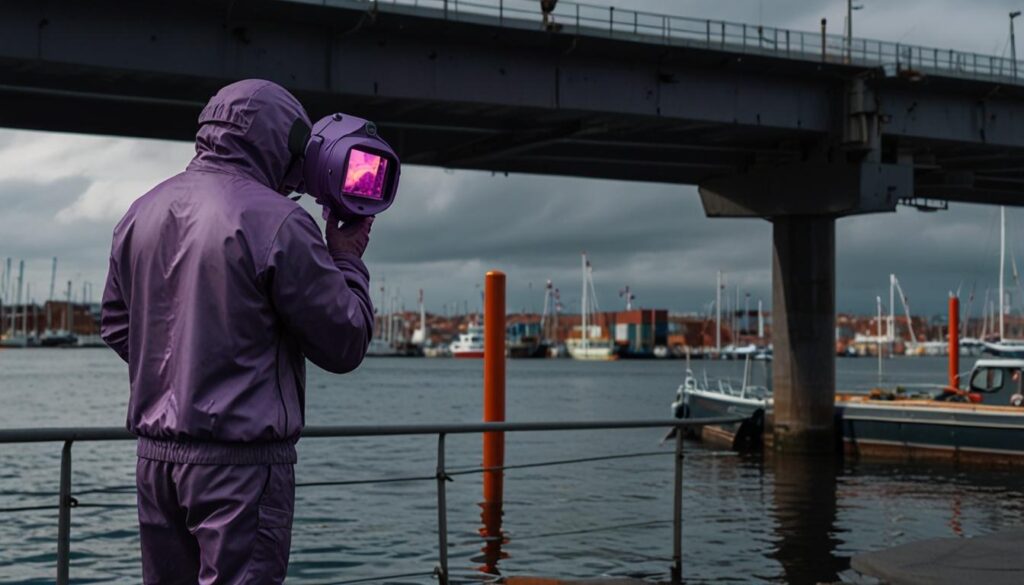A collaborative project at the University of Aalborg utilising AI and video technology to improve harbour safety has been recognised with a prestigious research award. The initiative, in partnership with Milestone Systems, focuses on detecting and preventing accidents in harbours using thermal cameras and synthetic datasets.
A groundbreaking research project at the University of Aalborg, Denmark, which employs artificial intelligence (AI) and video technology to enhance harbour safety, was recently honoured with the Danish Spar Nord Foundation Research Award. The collaborative effort between Aalborg University and Copenhagen-based Milestone Systems has made significant advancements in harbour safety technology.
The award-winning research focuses on the deployment of thermal cameras and synthetic datasets to detect and prevent fatal accidents in harbours. Over a period of nine months, the team developed the largest outdoor annotated thermal dataset for video analytics at Aalborg Harbour.
Rahul Yadav, Chief Technology Officer at Milestone Systems, stated, “This development in thermal datasets marks a significant step forward in video technology, offering extensive resources for safer harbour operations globally.”
According to the World Health Organisation, approximately 236,000 people drown each year worldwide. In Denmark, harbour incidents have resulted in the loss of 1,647 lives between 2001 and 2015, with 25% of these tragedies occurring in harbours. Given the clear need to prevent such accidents, researchers at Aalborg University utilised AI to identify abnormal behaviours and enhance safety in Denmark’s busy Aalborg Harbour.
Direct, real-world replication of accidents, such as a person falling into a harbour, presents significant safety and ethical challenges. Consequently, the research team employed innovative methods, including the use of test-dummies filled with warm water detectable by thermal cameras. This approach, along with annotated thermal images, enabled the training of AI models to rapidly detect and alert rescue teams to potential accidents.
Neelu Madan, a lead researcher and PhD student at Aalborg University, explained that the models were trained using a synthetic dataset. This dataset included scenarios involving diverse individuals, such as wheelchair users, skaters, and cyclists, to ensure comprehensive coverage of potential accidents.
“By understanding normal waterfront behaviour, the AI model can identify abnormal events like a person falling off the dock and immediately trigger an alarm, ensuring quick response times even if the accident occurs without witnesses,” said Madan.
The research further demonstrates the utility of synthetic data in training AI models for scenarios that are difficult to replicate in reality. Beyond harbour safety, Madan sees potential applications in manufacturing, where accurate AI monitoring can enhance production processes and reduce the risk of costly errors.
The partnership between Aalborg University and Milestone Systems underscores the potential of integrating AI and video technology to address critical safety challenges in various sectors. While the immediate focus is on improving harbour safety, broader applications of this technology could revolutionise safety standards across different industries.
Yadav expressed pride in the achievement, noting that the project showcases how combining video technology software and AI can have far-reaching benefits for society. The research has already provided the community with a significant resource in the form of the largest annotated thermal dataset, and its potential for global adoption is promising.
Milestone Systems, a leading provider of video technology software, supports various industries by enhancing safety, protecting assets, and improving business efficiency. Founded in 1998 and part of the Canon Group, Milestone enables an open platform community fostering collaboration and innovation in network video technology.

